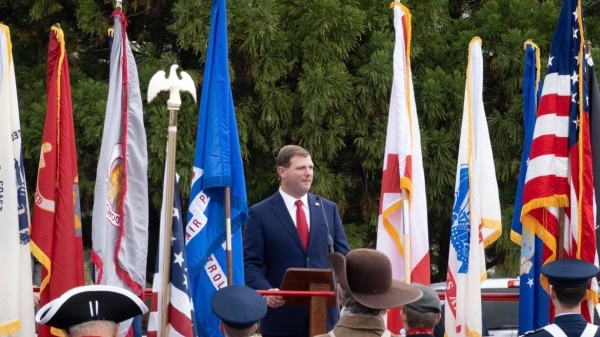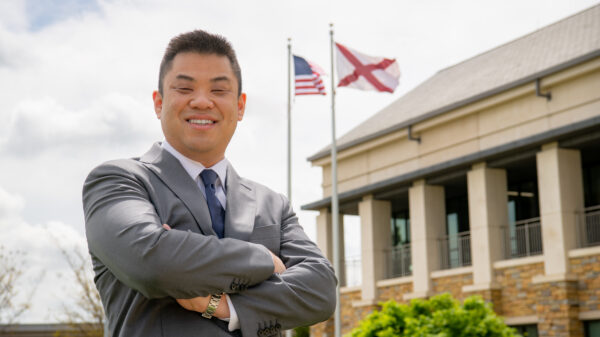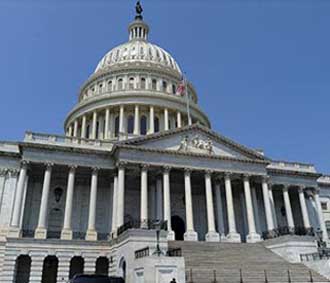By Thomas Scovill
Madison—Troy Smithwick of Talladega was a losing candidate in the 2008 primary for the state school board. In 2011 he was convicted of two violations of Alabama’s Fair Campaign Practices Act. He failed to file the annual campaign finance report required for 2008 and he misreported the name of The Real Democrat PAC which had a made a $100,000 contribution to his Republican primary campaign.
In his press release on the Smithwick case, Attorney General Strange stated “Campaign finance disclosure laws are an essential part of an open and honest government” and that “When these laws are disregarded and broken, the integrity of our government is threatened. The Office of Attorney General is committed to investigating and prosecuting such violations and to protecting our citizen’s trust in the integrity of their public representatives.”
Yet as far as Google seems to know, Smithwick is the only person in recent years to have been convicted of violating the FCPA. Perhaps Daniel Boman aims to change that.
In 2010 Daniel Boman of Sulligent was elected to represent district 16 in the Alabama House of Representatives. He was elected as a Republican but switched to Democrat in 2011. He is now running against incumbent Congressman Robert Aderholt as the Democrat candidate in Alabama’s congressional district 4.
In 2010 Boman filed three pre-election campaign finance reports and in January 2011 he filed the required annual report for 2010. These reports are fraught with issues, and he has not filed the annual report for 2011 which was due in January 2012 – the same offense Smithwick was convicted of last year.
The missing 2011 annual report is significant and not merely because it is required by law. Without the missing report for 2011, citizens cannot know what became of nearly $108,000 of campaign debt that Boman reported at the end of 2010 in his annual report for that year.
His 2010 reports show loans (mostly from himself) of $80,250 which presumably is included in the debt reported. There is an unaccounted debt of almost $28,000. Presumably this reflects some combination of additional spending or borrowing which should have been but was not reported. This may be part of a larger effort to avoid reporting receipts and expenditures before the election.
Boman also circumvented the FCPA by not reporting the large majority of his expenditures until after his last pre-election report of October 28. He reported spending about $82,000 in 2010. Before the election he reported spending only about $15,000. He reported additional spending of $67,000 after his last pre-election report, and over $47,000 of this amount was spent after his last pre-election report and on or before election day on November 2. He reported spending about $20,000 after the election.
Less than 20 percent of Boman’s campaign spending was reported to the voters before the election. His pre-election reporting is substantially incomplete and there is a case to say he should not have been certified as the winner of the general election.
There are other problems with Boman’s campaign finance reports. They are fraught with incomplete or missing addresses and dates. He did not itemize $4,500 of payments to himself. He made $400 of impermissible contributions to a payee who is not tax exempt, i.e., Oak Hill Country Club. He did not report paying a filing fee for the 2010 Republican primary. During the 2010 special session he took an impermissible contribution of $500 and he spent $196 for lodging, an impermissible personal living expense. And given the mess of his reporting, one should wonder whether he issued 1099’s to the persons to whom he made payments of $19,000 for labor.
Perhaps Daniel Boman should spend more time getting campaign finance right and less time musing on the sexual orientation of his congressional election opponent. In the mean time, do you think Troy Smithwick will remain the rare bird that he is today?
************************************************************************************************************************
“Campaign finance disclosure laws are an essential part of an open and honest government,” said Attorney General Strange. “When these laws are disregarded and broken, the integrity of our government is threatened. The Office of Attorney General is committed to investigating and prosecuting such violations and to protecting our citizen’s trust in the integrity of their public representatives.”
References:
FCPA Section 17-5-8
(b) Each principal campaign committee, political action committee, and elected state and local official covered under the provisions of this chapter, shall annually file with the Secretary of State or judge of probate, as designated in Section 17-5-9, reports of contributions and expenditures made during that year. The annual reports required under this subsection shall be made on or before January 31 of the succeeding year.
(c) Each report under this section shall disclose:
(10) The amount and nature of debts and obligations owed by or to the committee or elected official, together with a statement as to the circumstances and conditions under which any such debt or obligation was extinguished and the consideration therefor.
Section 17-5-2.
(a)(5) EXPENDITURE.
a. The following shall be considered expenditures:
1. A purchase, payment, distribution, loan, advance, deposit, or gift of money or anything of value made for the purpose of influencing the result of an election.
2. A contract or agreement to make any purchase, payment, distribution, loan, advance, deposit, or gift of money or anything of value, for the purpose of influencing the result of an election.
3. The transfer, gift, or contribution of funds of a political committee to another political committee.
NEWS RELEASE Luther Strange Alabama Attorney General FOR IMMEDIATE RELEASE November 2, 2011 For More Information, contact: Joy Patterson (334) 242-7491 Suzanne Webb (334) 242-7351 Page 1 of 1 501 Washington Avenue Montgomery, AL 36104 (334) 242-7300 www.ago.alabama.gov
AG ANNOUNCES SENTENCING FOR CAMPAIGN LAW CONVICTION
(MONTGOMERY)—Attorney General Luther Strange announced the sentencing today of a former state school board candidate for campaign finance disclosure violations. Troy W. Smithwick Jr., 68, of Sylacauga, was convicted in Talladega County Circuit Court on September 20 of two counts of violating the Alabama Fair Campaign Practices Act. He was sentenced today to a suspended sentence of four months on each count in the county jail to run concurrently, and given 12 months probation. He also received a $500 fine on each count, plus other court costs and assessments.
The Attorney General’s Office presented evidence to a jury in Talladega County resulting in the convictions for which he was sentenced today. In the first count, Smithwick was convicted of failing to file an annual report, as required by Code of Alabama Section 17-5-8(b). The evidence showed that Smithwick, who was an unsuccessful candidate for state school board in the 2008 Republican primary, knowingly did not file an annual report of contributions and expenditures by January 31, 2009, as required by state law. For the second count, Smithwick was convicted of improperly reporting a campaign contribution, in violation of Code of Alabama Section 17-5-8(c)(2). The evidence showed that Smithwick received a campaign contribution from “The Real Democrat PAC” (“TRD PAC”) for $100,000 in May of 2008, but that he knowingly reported that the contribution came instead from the “Tennessee Valley Citizens for Economic Development PAC.”
“Campaign finance disclosure laws are an essential part of an open and honest government,” said Attorney General Strange. “When these laws are disregarded and broken, the integrity of our government is threatened. The Office of Attorney General is committed to investigating and prosecuting such violations and to protecting our citizen’s trust in the integrity of their public representatives.”
Attorney General Strange commended those involved in bringing this case to a successful conclusion, noting in particular Assistant Attorneys General Bill Lisenby and Pete Smyczek and Paralegal Lori Arnold of the Attorney General’s Public Corruption and White Collar Crime Division, and Assistant Attorneys General Ben Baxley, Thomas Govan, and Brenda Smith for their work on the case, as well as special agents of the Attorney General’s Investigations Division.














































